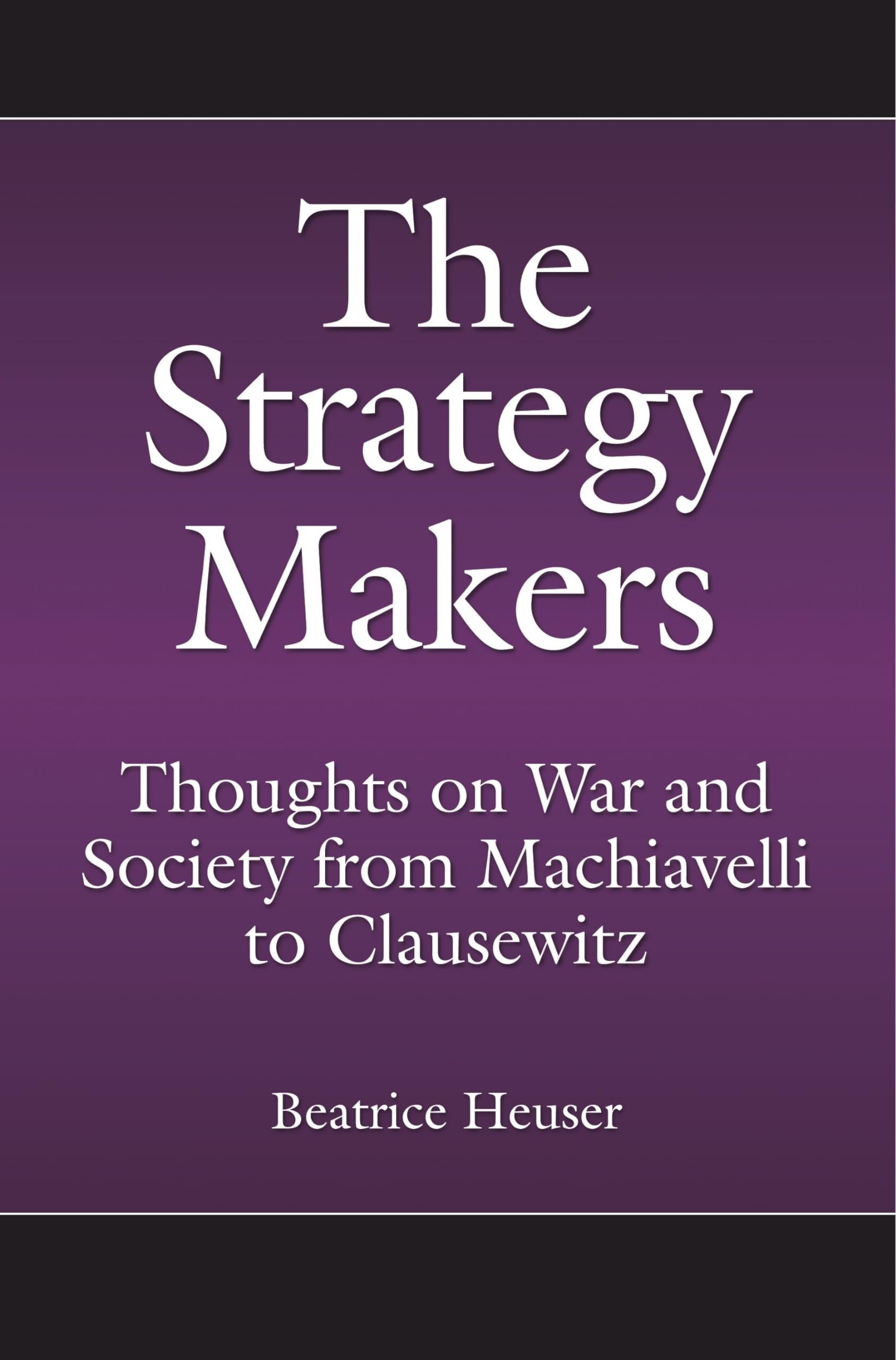Customer Services
Copyright © 2025 Desertcart Holdings Limited
Desert Online General Trading LLC
Dubai, United Arab Emirates


The Strategy Makers: Thoughts on War and Society from Machiavelli to Clausewitz (Praeger Security International)
T**1
Interesting but often misjudged
Heuser covers many of the great strategic minds in history. This book focuses on theory and is not a military history book in the sense of talking battles and casualty rates.It is awkwardly written in many places and does not flow particularly well. I find myself personally disagreeing with many of her takes, especially on her predictions for how war would be fought in the future (this book as not somewhat dated as it is more than ten years old).
Z**Æ
Yet another premier work by Beatrice Heuser !
>>>Once again, Beatrice Heuser proves that she is the reigning queen of premier military historians at the highest caliber. No doubt, you are familiar with Clausewitz? However, are you aware that Clausewitz may be far more famous for his poetic phrasing of military concepts, than for his originality regarding crucial military constructs? War is an act of government policy; defense as the stronger for of war; the criticality of chance in war; the importance of understanding the complexities, dynamics and nuances of small wars...none of these were original Clausewitzian constructs. These and many other crucial military concepts were all written about in great detail long before the much celebrated magnum opus of Clausewitz ever appeared in publication. However, the popular opinion is that Clausewitz said them better.>>>In her latest work, Heuser employs her highly insightful manner of historical prose and research along with her skillful ability of self-translation to reacquaint us with nine obscure but critical military philosophers: Fourquevaux, de Sailans, Sutcliffe, Mendoza, Chastelet, Santa Cruz, Zanthier, Guibert, and last but not least von Lilienstern. All of these military philosophers were eclipsed by the cruelties of history for one reason or another - and most have been severely overlooked in modern times. Eight of these authors significantly pre-date Clausewitz in their publications by century or two; while one other is actually a contemporary of Clausewitz and well-known within the same Prussian military circles.>>>While there is clearly no intentional focus by Heuser to de-canonize Clausewitz, one cannot read the crucial thoughts of these obscure military philosophers and then go back to read Clausewitz ever again with an awe of excessive reverence. Many of these critical pre-Clausewitzian military thoughts bring the question of direct and/or indirect influence upon Clausewitz squarely to the forefront. It becomes quite obvious that so many critical military thoughts were by no means original to - albeit possibly "rediscovered" by Clausewitz.>>I have but three trite criticisms: 1) this insightful manuscript wasn't nearly long enough, and it could have been much longer by various means; 2) as with so many other military authors and works, there is way to much emphasis, in modern parlance, on the term `strategy'; not nearly enough emphasis on `military philosophy' - and so much more of this book falls under the rubric of `military philosophy' than `strategy'; 3) Heuser should have included much more on Christine de Pisan despite the fact that her military manuscripts predate all of those mentioned in this book.>>>After some reflection, the obvious becomes clear that it was most likely the poetic use of military language which mesmerized so many into the myopic misperception that Clausewitz, alone, was the one true god-of-war. In reality, over the millenniums of history, there have been many gods-of-war. Heuser has now eloquently reacquainted us with just a few these lesser gods-of-war. We need more not less of this keen insight - just as we need more not less from Heuser.
T**R
Excellent Source Material.
Excellent Source material. Ms Beatrice Heuser has also published several other books on strategy. The work is very thorough and readable. Her commentary and notes add clarity and this should be a desk reference for any serious student of the art. I highly recommend this book.Chapter One of this book is an introduction to the main players and themes. It provides a very good comparative look. This book also assumes that the reader already has a very good knowledge of the players and the themes, however, it is still very helpful and useful for a novice to the field. The remaing chapters are devoted entirely to individual actors, some of which are unknown to the American audience.
Trustpilot
2 days ago
1 month ago